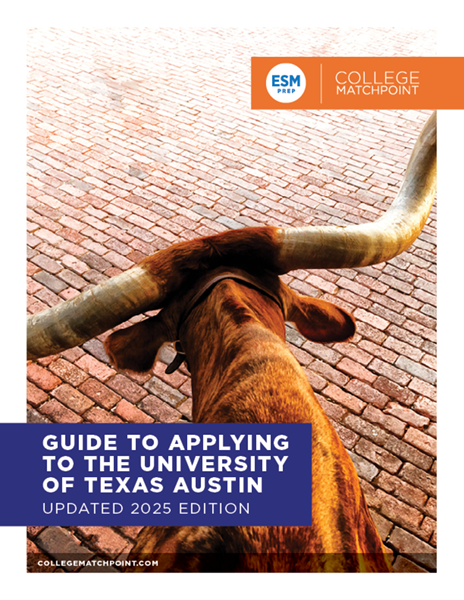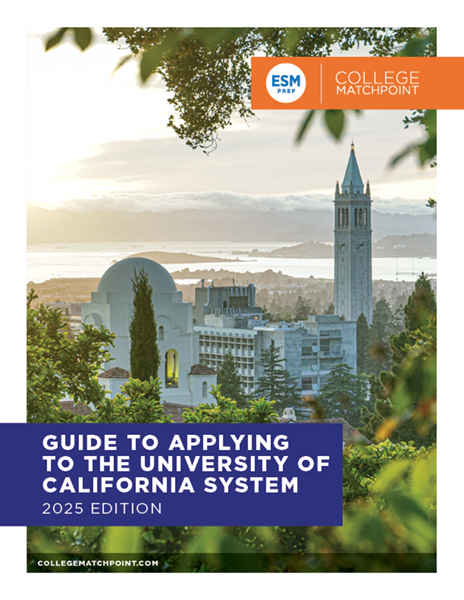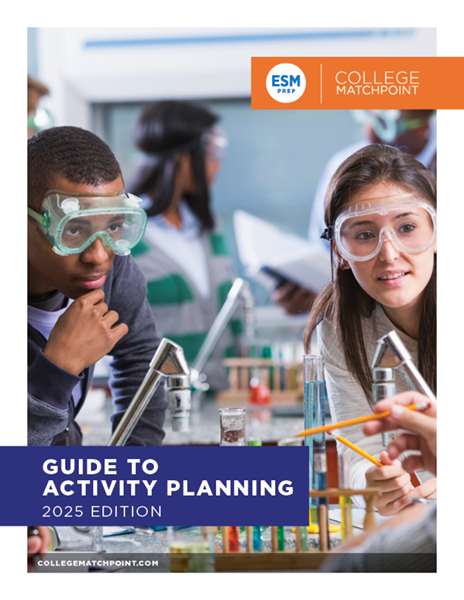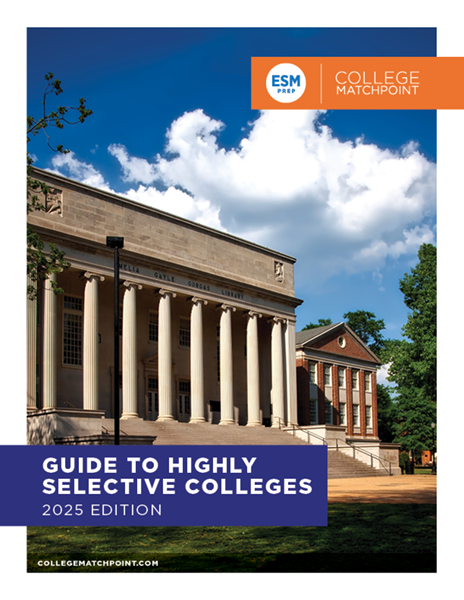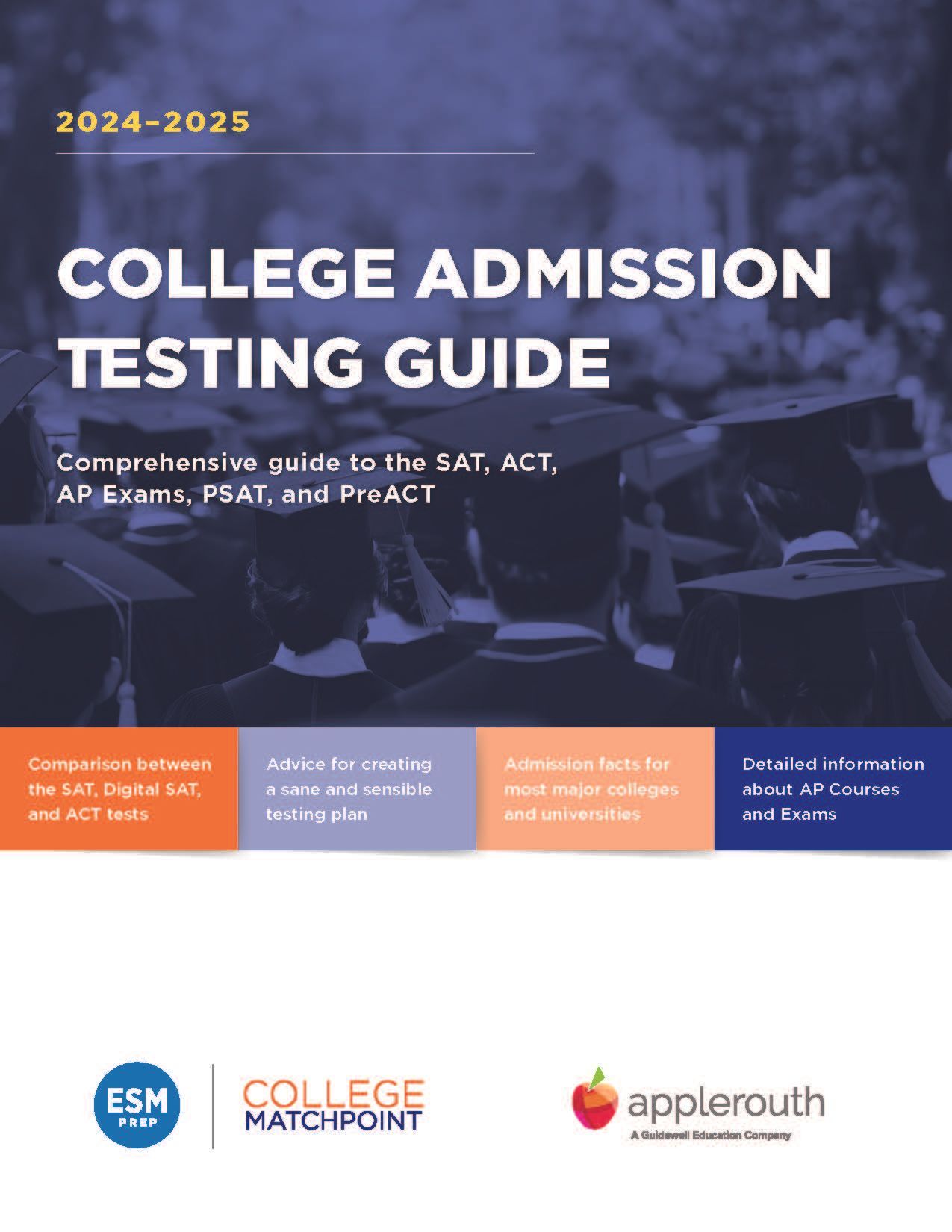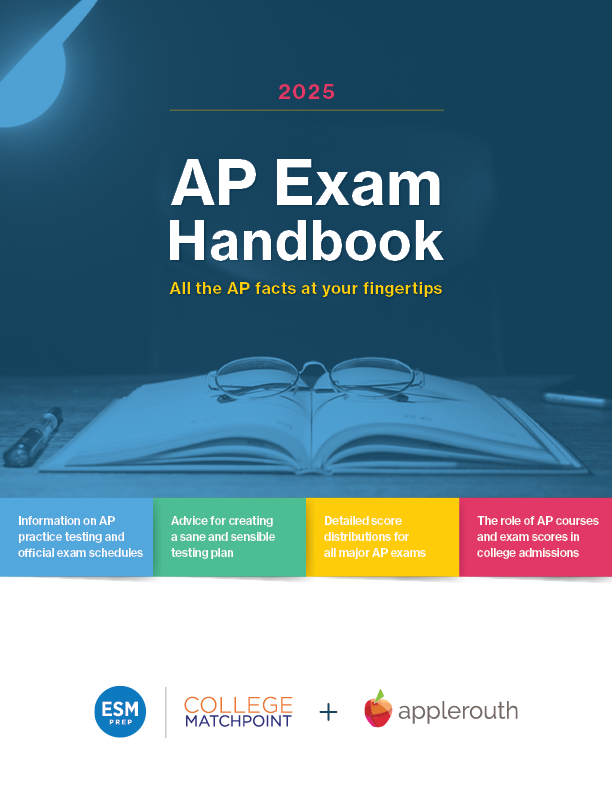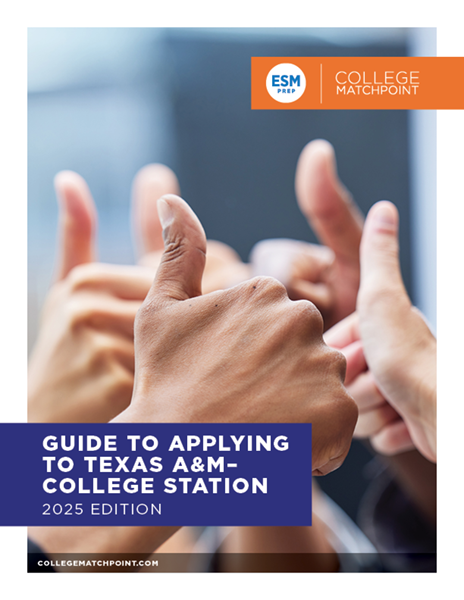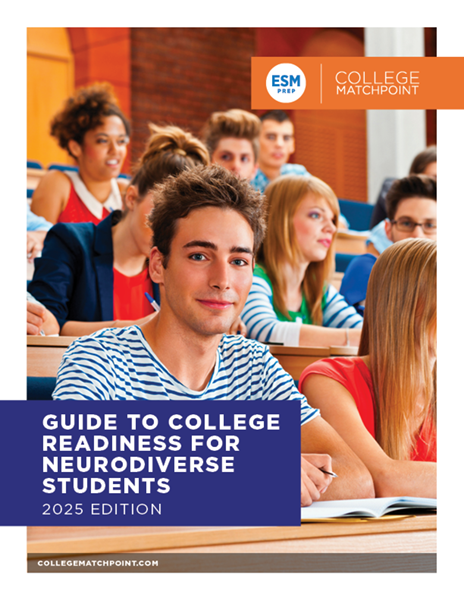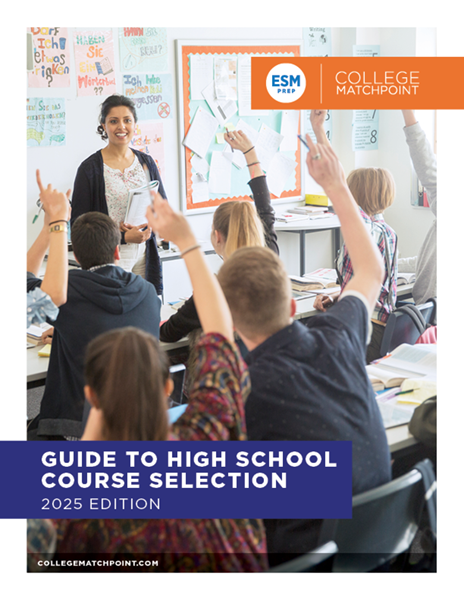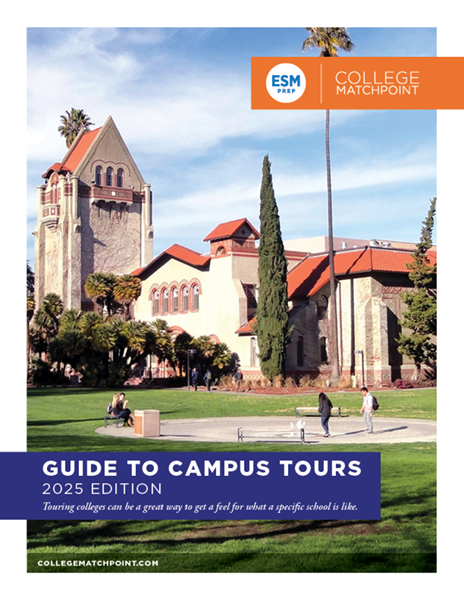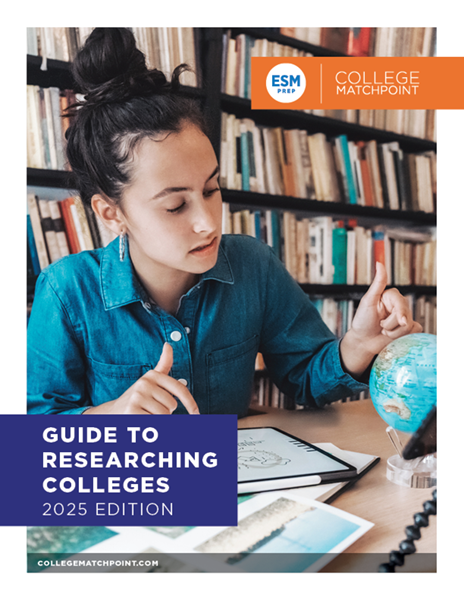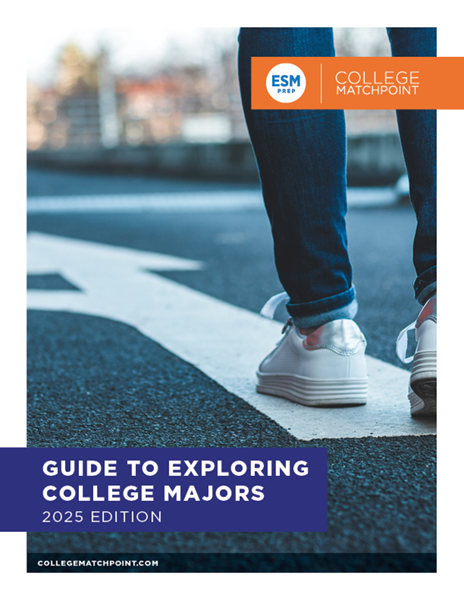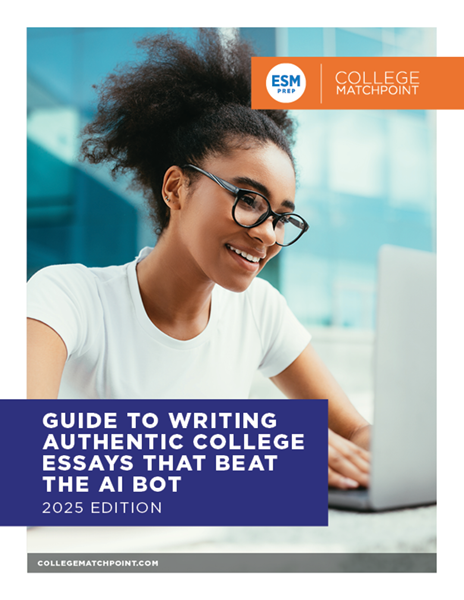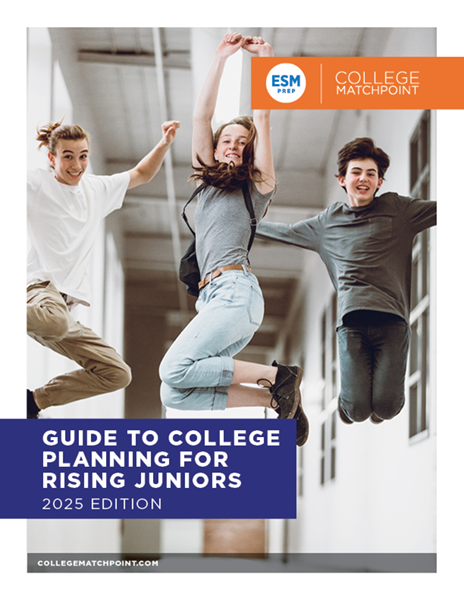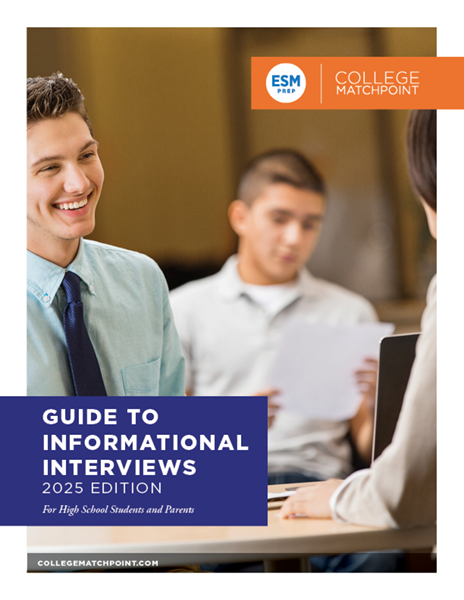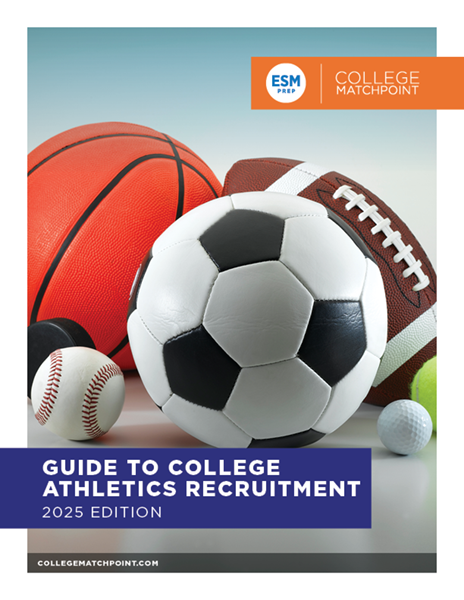This page is licensed under Creative Commons under Attribution 4.0 International. Anyone can share content from this page, with attribution and link to College MatchPoint requested.
Resources
The team at ESM Prep College MatchPoint has developed a set of free tools and resources to help students and families successfully navigate the college admissions process. We are committed to helping all students thrive in their selected college, and the first step is reducing the stress of the admissions process for students and parents alike.
With that in mind, we've used our team's expertise—developed over years of working with students, parents, and college admissions officers—to create a library of free resources that you can use as you navigate the college journey.
Guide to Summer Planning
For many of today's college-bound high school students, the summer is no longer nine weeks of total relaxation, but rather an opportunity to spend time actively working, learning new skills, or diving deeper into an area (or areas) of interest. This complete guide to summer planning walks you through the various types of summer opportunities — from volunteer work to independent projects, and everything in between — and offers tips for how your student can take their involvement up a notch during the summer.
Guide to Applying to the University of Texas at Austin
It's hard to believe that a school as large as the University of Texas at Austin actually reviews every part of every student's application. But it does: UT is deeply committed to the holistic review of its applicants.The 2023 edition of this guide covers all required essays, as well as providing detailed information on the expanded resume, letters of recommendation, and evaluating fit-to-major and honors programs.
Guide to Applying to the University of California System
Applying to the renowned University of California (UC) system can feel daunting. This guide provides strategies for navigating the system's requirements, selecting campuses and majors, and crafting a compelling application. With details on the 9 UC campuses, A-G course requirements, and holistic review process, this resource equips students to maximize their chances of admission to their dream UC school.
Guide to Activity Planning
The most successful college applicants have engaged in activities that are based on their interests, aptitudes, and motivations. This guide presents our i4 framework and walks you through how your student can optimize their interest, involvement, initiative, and impact to successfully engage during high school and develop into a strong college applicant.
Guide to Highly Selective Colleges
Applying to a highly selective college can be daunting, but if your student has their heart set on one, there are some guidelines they can follow to help them stand out from the crowd. This guide discusses what highly selective colleges look for in students, how to achieve "depth" in activities, and the importance of having a specific application strategy for the most selective schools.
Guide to College Admission Testing
This comprehensive guide empowers families with expert insights on today's complex standardized testing landscape. It addresses critical questions about test-optional policies, digital SAT transitions, and strategic testing timelines that directly impact college admissions outcomes. The guide covers personalized testing strategies, accommodation application processes, and essential information about SAT, ACT, PSAT, and AP exams.
Guide to AP Exams
As AP exams become increasingly important in college admissions, particularly in the test-optional era, this handbook serves as a complete resource for understanding and preparing for these crucial tests. The guide provides detailed breakdowns of all AP exam formats, scoring patterns, and preparation strategies, along with expert advice on creating a sensible testing plan and accessing practice materials.
Guide to Applying To
Texas A&M University
This year, we’re excited to share the first edition of our College MatchPoint Guide to Applying to Texas A&M. The school has seen more than 20% increase in applications over the last 3 years, with engineering majors assuming a national profile. This guide covers all required essays, as well as providing detailed information on the resume, evaluating fit-to-major, and honors programs.
Guide to College Readiness for Neurodiverse Students
Supporting a neurodivergent student through the college admissions process can feel overwhelming, but with proper planning and the right college fit, your teen can thrive in higher education. This guide helps you understand how to evaluate your teen's college readiness, navigate the transition from high school to college support systems, and find the best college environment for their unique learning needs.
Guide to High School Course Selection
Students want to challenge themselves, but they also want classes
that will allow them to thrive. This guide will help students evaluate what classes to choose for the coming academic year, and includes information on evaluating class rigor, the differences between curricula, and decisions on classes that are crucial in the college admissions process.
Guide to Campus Tours
Touring colleges can be a great way to get a feel for what a specific school is like, but because these visits are brief, it's crucial to go into them prepared. In this guide, we provide a college tour checklist, a list of not-to-be-missed campus destinations, and tips for making the most of your college visits. With this guide in hand, you can focus on taking advantage of this special time together with your student.
Guide to Researching Colleges
The college research phase of the process is so crucial: it’s an opportunity for students to explore outside their existing knowledge and discover the breadth of options available to them. This guide includes suggestion for developing a college criteria, top list-building resources, using the college website and social media for research, and suggestions for family discussions of the college list.
Guide to Exploring College Majors
Choosing a major is an exciting journey, and it's one to go into prepared—the choice of major will not only determine what they study for the next four years, but also has the potential to impact the rest of the student's likelihood of admissions to many schools. This guide offers suggestions for how to navigate the process, important stats about majors and their career tracks, information about how a major choice will affect your student's high school years, and much more.
Guide to Writing Authentic College Essays that Beat the AI Bot
Crafting a standout college application essay is essential, but it's a challenge when artificial intelligence tools can generate seemingly polished prose. This guide equips students to write an essay showcasing their unique personality, values, and experiences. By tapping creativity, mining memories for vivid stories, and connecting passions to goals, students can craft an essay that resonates with admissions officers, not bots.
Guide to College Planning For Rising Juniors
Colleges consider junior year important for admissions because it's the last full year they see on a transcript and can evaluate academic preparedness and potential success. This guide for parents of rising juniors offers valuable insights to help you and your student make the most of this time. It covers all the essential areas to set your student up for success
Guide to Demonstrated Interest
This guide explains what demonstrated interest is and why it matters in college admissions. The guide provides tips on effective ways to show interest such as visiting campus, meeting professors, interviewing, attending college fairs, and communicating with admissions. It also includes a worksheet to help students track their demonstrated interest activities for each college.
Guide to Informational Interviews
This guide will help your student prepare for their informational interviews. It offers space to jot down potential questions and provides structure for taking notes during the interviews and following up after.
Guide to College Athletics Recruitment
Understanding the landscape of college athletics is an important first step in moving forward in seeking your best-fit college experience. This guide walks you through creating a recruitment plan throughout high school, tips for communicating with college coaches, creating athletic resumes and highlight reels, and an overview of the governing bodies of athletic recruitment



